What are Possessive Adjectives?
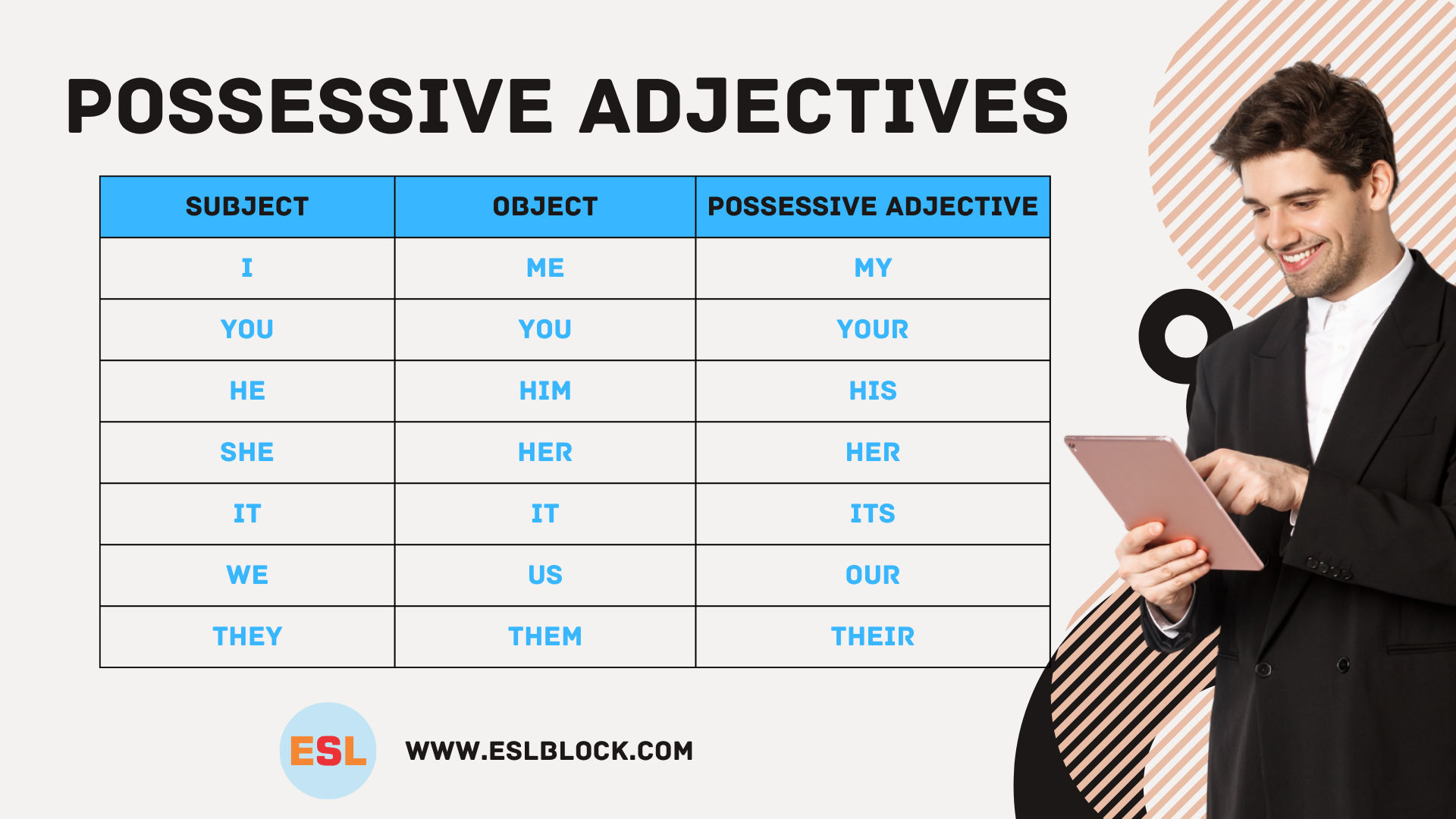
![]()
What are Possessive Adjectives? There are many different kinds of adjectives that are part of the English language. It can be confusing. It doesn’t have to be. In this article, we’re going to examine possessive adjectives and the ways they can be used in sentences. We will also examine several examples of possessive adjectives to help understand their role.
For example, in the sentence, Sophia lost her keys the word her is a possessive adjective that indicates the keys belong to Sophia.
In the simplest way, a possessive adjective can be described as the adjective that indicates possession. This kind of adjective is applied before a noun as an indication of the owner of it.
Some examples of possessive adjectives include my, its, your, our, her, their, whose (interrogative), and so on.
If you are searching topic about “What are adjectives” then click on the link to know more about adjectives first!
List of possessive adjectives
Following are the most common possessive adjectives:
- my
- your
- our
- their
- his
- her
- its
- whose
READ: Negative Adjectives
Some example sentences using possessive adjectives
- Is this your bike?
- Your car is red.
- Whose cup is this?
- This is my dog.
- Your house is larger than her house.
- Will they be going to his birthday party?
- Have you seen our new house?
In the above examples, your, whose, my, her, his, and our are possessive adjectives.
Possessive adjectives and possessive pronouns
The commonly used possessive adjectives are his, her, my, your, its, our, their, and whose. In order, these adjectives correspond to the pronouns he, she, I, you, it, we, they, and who.
The list of possessive pronouns that correspond to respective pronoun and possessive adjective is:
| Subject | Object | Possessive adjective |
|---|---|---|
| I | me | my |
| you | you | your |
| he | him | his |
| she | her | her |
| it | it | its |
| we | us | our |
| they | them | their |
| who | whose | whose |
What is the Difference between Possessive Adjectives and Possessive Pronouns?
Possessive adjectives and possessive pronouns can be complicated because they are connected to one another; but, it is simple to distinguish the two. Just remember that possessive pronouns are employed to replace a noun, while possessive adjectives modify and follow a noun.
- Amelia’s car is red. Hers is white. (possessive pronoun examples)
- His name is Benjamin. Her name is Charlotte. (possessive adjective examples)
Possessive adjectives serve to indicate ownership. It is used before a noun. Possessive adjectives do not form through the addition of an apostrophe, and ‘s’ after the word such as your, my or his, hers, it, us, and their words are possessive adjectives. On the other hand, your’s, our’s are not possessive adjectives.
Possessive pronouns indicate ownership, however, they don’t appear before the noun phrase since they can be used alone and substitute for the noun, like mine you, yours hers, it, etc.
Possessive adjective example sentences
Following are the example sentences showing the use of possessive adjectives:
- Why didn’t you clean your room?
- Mary doesn’t like her skirt.
- His name is Lucas.
- Her name is Isabella.
- Our puppy always looks cute.
- We sold our old bike yesterday.
- The students thanked their.
- Never judge something by its looks.
- It is my coat.
- Your horse is really fast.
- Her temper hasn’t improved with age!
- This is our kite.
- Their bedroom is equipped with all kinds of antique gadgets.
Rules Of Possessive Adjectives
Like any other area of grammar in the English language, There are specific guidelines to follow when using possessive adjectives. But, they are simple to grasp and we’re going to examine the Rules Of Possessive Adjectives in more specific detail.
Use Of Apostrophes
There is a common error to apply an apostrophe to the possessive adjective “its” when it isn’t required. We use the apostrophe using the word it when it is being reduced from it has or it is, as possessive adjectives do not fit into this category, it does not require an apostrophe.
Your vs You’re
Similar to the one above, many people get confused by the usage of the words your and you’re. When you use a possessive adjective it is best to use the word ‘your’. Keep in mind the word “you’re” is a short version of the word “you are” but is not suitable to be used as an adjective for possessive use.
Their, there, they’re there
One of the most frequent complaints among English Grammar and spelling fans are the misinterpretation that exists between the three variants of the word ‘their” they’re and there. When you use this as a possessive adjective, it is best to make use of the spelling ‘their’ because the other two spellings refer to something completely different.
Whose vs Who’s
Also, many people confuse possessive adjectives whose is used for the word who’s, but this isn’t the correct spelling. It is actually a shorter form of the word ‘who is.’
Use of the words he, she, and its
In the case of people generally in English it is not any gender-specific word, but there is a possessive adjective ‘its’ is often employed when the word ‘their’ is to be employed. Let’s look at an example.
- Every parent has the responsible for his or her own child.
While this is a valid statement however, it’s a bit complicated and many could use it instead. However, this isn’t correct.
- Every parent has the responsible for its own child.
The following paragraph is an example of how is the proper way to use it.
- Every parent has the responsible for their own child.
Forms of Possessive Adjectives
Following are different forms of the possessive adjectives:
1st Person Possessive Adjectives: my, our
1st Person Possessive Adjectives can be used for both male and female owners; whereas, ‘my’ is used for singular owners and ‘our’ is used for plural owners.
1st Person Possessive Adjectives Example Sentances
- We sold our car yesterday.
- My shoes are very nice.
2nd Person Possessive Adjectives: your
2nd Person Possessive Adjectives can be used for both, male and female owners and for both, singular and plural.
2nd Person Possessive Adjectives Example Sentences
- James doesn’t have your book, Emma.
- Children, don’t forget to eat your food.
3rd Person Possessive Adjectives: her, his, its, their
3rd Person Possessive Adjectives like ‘his’, ‘her’, and ‘its’ are used with singular owners, whereas ‘their’ is used for plural owners. Further, ‘his’ is especially used with male owner and ‘her’ with female owners.
3rd Person Possessive Adjectives Example Sentences
- Her name is Olivia. (Olivia is a female name)
- His name is Noah. (Noah is a male name)
- The students thanked their teacher. (The word ‘students’ is plural and ‘their’ is used)
Possessive Adjectives Exercise
Possessive adjectives exercise provided below will aid you to analyze your understanding of possessive adjective. You can go through all the information above on the possessive adjectives. You can test your skills by doing these exercises to master possessive adjective.
We’ve used possessive adjectives throughout the sentences. You should test your proficiency by identifying possessive adjectives within every sentence.
- My clock is on the table.
- I think you forgot your dinner.
- The cat buried its bone.
- The girl missed her train.
- Lucas left his bag in the class.
- That’s our car.
- My bike is very old.
- My father is very honest.
- How kind is your mother?
- He’s broken his toy.
- She’s stitching her clothes.
- I need to clean my room.
- I want to go to my city.
- I want to marry with my friend.
- Your hat is there.
- Your school is very far from house.
- Who are your father and mother?
- Who is my neighbour?
- I finished my breakfast.
- I missed my bus today.
Answers: 1 – my, 2 – your, 3 – its, 4 – her, 5 – his, 6 – our, 7 – My, 8 – My, 9 – your, 10 – his, 11 – her, 12 – my, 13 – my, 14 – my, 15 – your, 16 – your, 17 – your, 18 – my, 19 – my, 20 – my.
Possessive Adjectives InfoGraphics
Here are some printable infographics about possessive adjectives. Printable infographics are a fantastic way to share a significant amount of details in a short time in a stunning way. The possessive adjectives infographic can help teachers and students to share their thoughts easily.
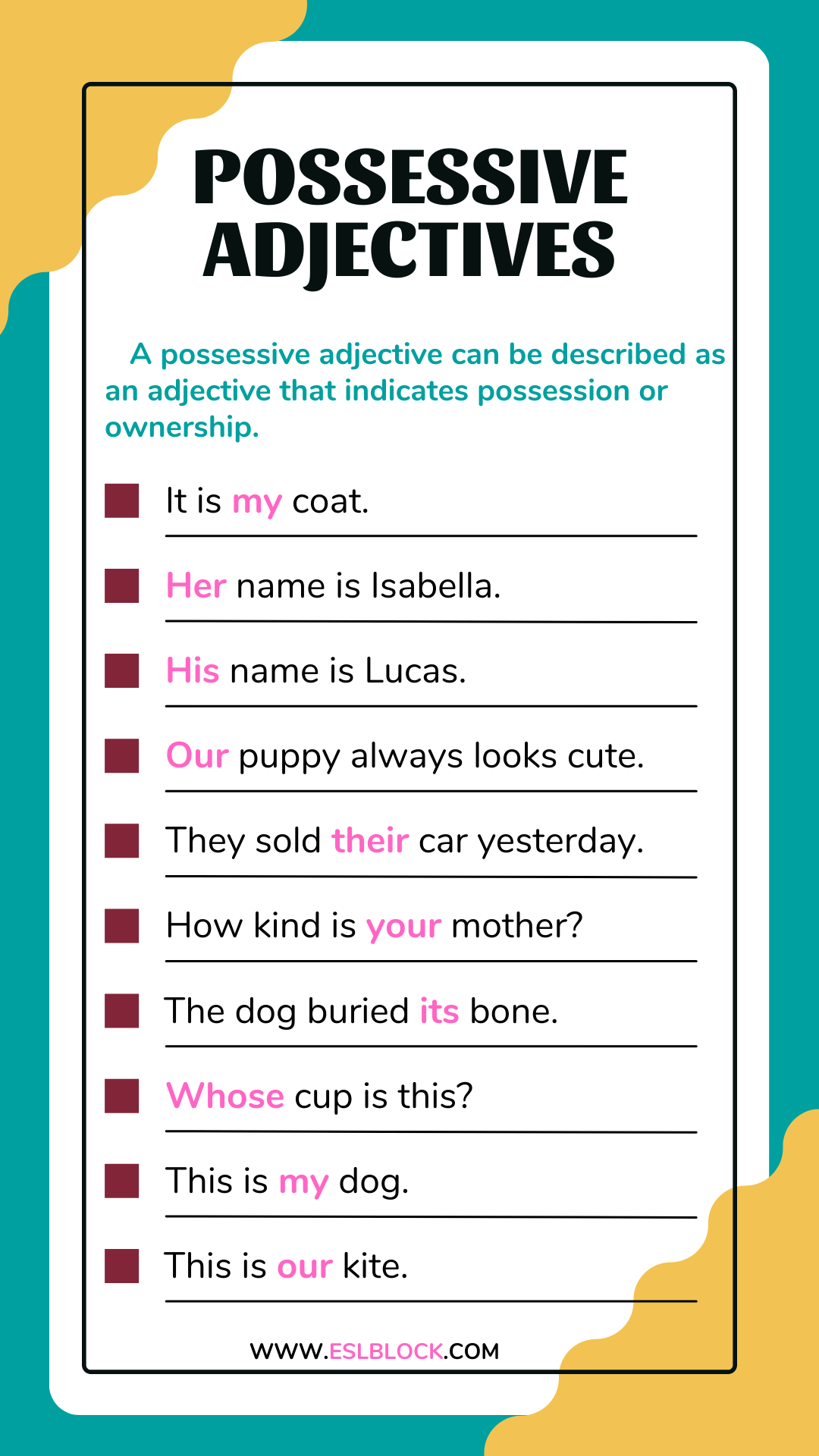
My Considerations
Since the Adjective is the main part of English reading, the importance of developing vocabulary cannot be undervalued without possessive adjectives.
You can read the above simple list of possessive adjectives to improve your understanding about English grammar.
Encourage your children to learn these basic but commonly used possessive adjectives, by following the simple example sentences given above. Then, save this list of possessive adjectives, handy for future interview use.
If you enjoyed a printable infographic about possessive adjectives, I’d be very thankful if you’d help it spread by emailing it to your friends or sharing it on Pinterest, Reddit, Twitter, Instagram, or Facebook. Thank you!
Recap of what we just learned
- What are Possessive Adjectives?
- List of Possessive Adjectives
- Possessive adjectives and possessive pronouns
- What is the Difference between Possessive Adjectives and Possessive Pronouns?
- Possessive adjective example sentences
- Rules Of Possessive Adjectives
- 1st Person Possessive Adjectives: my, our
- 2nd Person Possessive Adjectives: your
- 3rd Person Possessive Adjectives: her, his, its, their
- Possessive Adjectives Exercise
- Adjectives to Describe Yourself InfoGraphics
If you’re having any doubts about the qualities of possessive adjectives, you can leave a comment below, and we’ll attempt to give you feedback as early as possible. Thank you!
Related Topics
Explore the full list of Adjectives to Describe a Person from A to Z!
- A Adjectives to Describe a Person
- B Adjectives to Describe a Person
- C Adjectives to Describe a Person
- D Adjectives to Describe a Person
- E Adjectives to Describe a Person
- F Adjectives to Describe a Person
- G Adjectives to Describe a Person
- H Adjectives to Describe a Person
- I Adjectives to Describe a Person
- J Adjectives to Describe a Person
- K Adjectives to Describe a Person
- L Adjectives to Describe a Person
- M Adjectives to Describe a Person
- N Adjectives to Describe a Person
- O Adjectives to Describe a Person
- P Adjectives to Describe a Person
- Q Adjectives to Describe a Person
- R Adjectives to Describe a Person
- S Adjectives to Describe a Person
- T Adjectives to Describe a Person
- U Adjectives to Describe a Person
- V Adjectives to Describe a Person
- W Adjectives to Describe a Person
- X Adjectives to Describe a Person
- Y Adjectives to Describe a Person
- Z Adjectives to Describe a Person

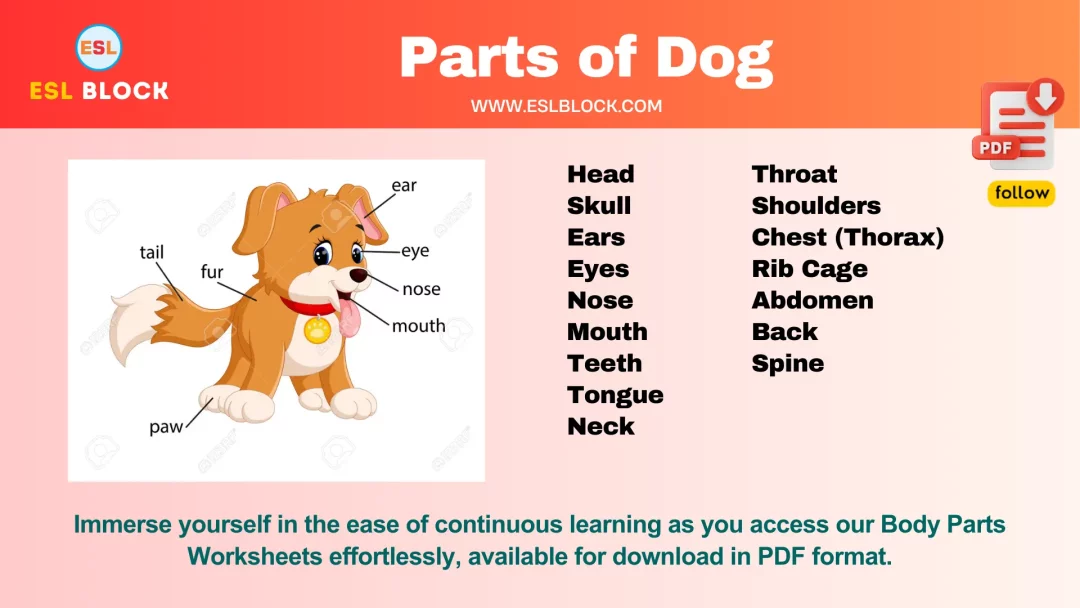

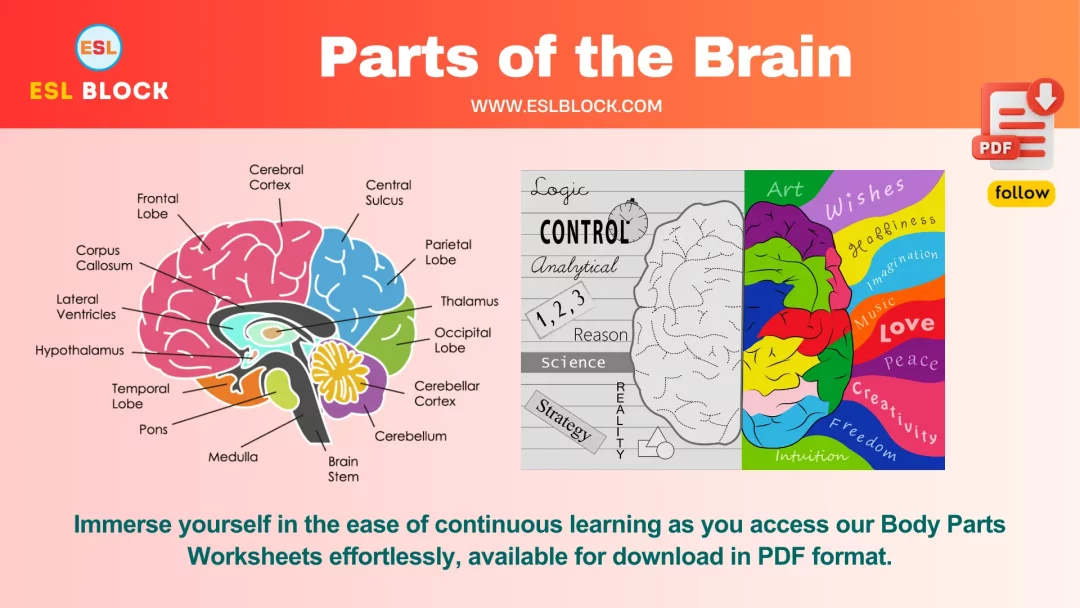


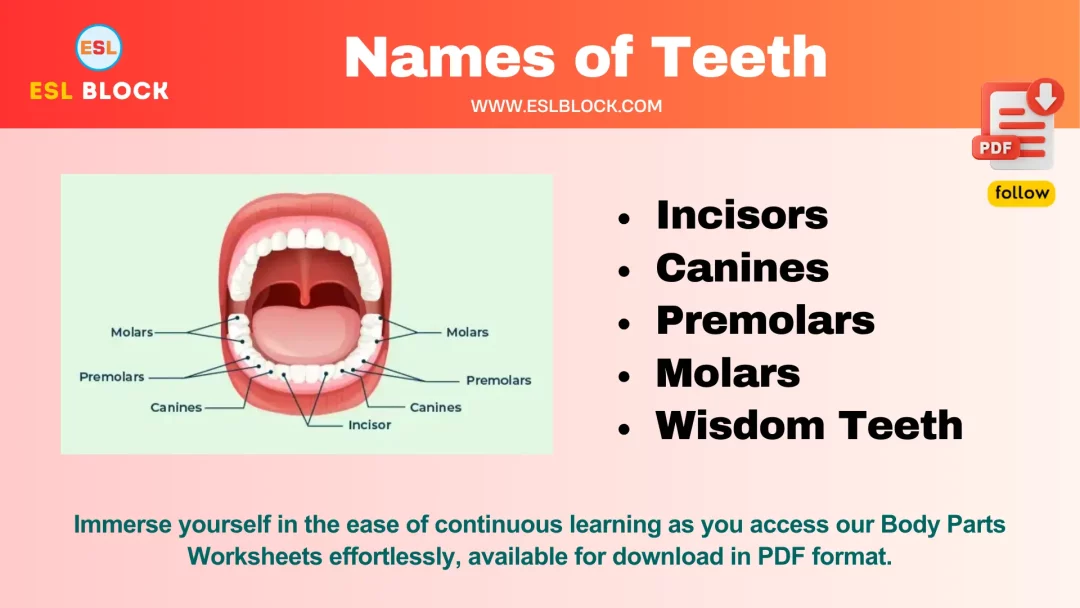
This really answered my problem, thank you!
Pretty section of content. I simply stumbled upon your blog and in accession capital to say that I acquire in fact loved account your weblog posts. Anyway I will be subscribing in your augment and even I achievement you get entry to constantly fast.